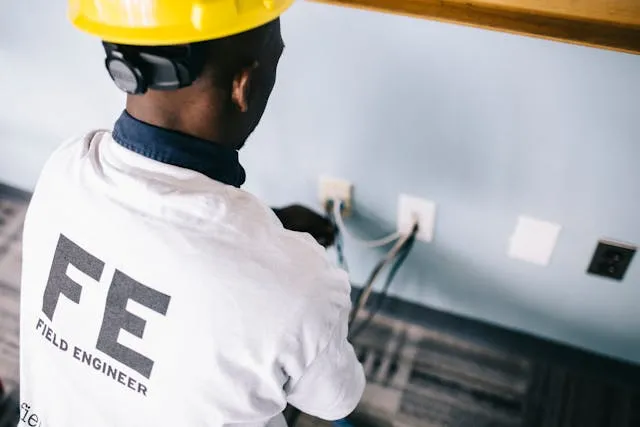A Straightforward Guide to No-Fuss Final Arrangements
Key Takeaways:
- Some families prefer a quiet farewell over a formal gathering
- Simple arrangements can ease emotional and financial pressure
- Private remembrance allows more personal and flexible tributes
- Planning ahead helps reduce uncertainty during difficult times
You don’t need elaborate planning to honour someone properly. In fact, many people now feel that less can actually be more—especially when emotions are running high and time is limited. If you’ve ever faced the stress of organising a traditional service, you’ll know how quickly it can become overwhelming.
There’s something comforting about choosing a simple, direct option. One that respects a person’s wishes without requiring endless logistics. For some families, this approach offers breathing space. It takes away the pressure of organising a formal event and instead makes room for reflection and private remembrance.
Whether you’re planning ahead or navigating a recent loss, a no-fuss farewell can bring clarity when you need it most.
What Drives the Shift Towards Low-Key Farewells
Traditional funerals are no longer the default choice for every family. In recent years, there has been a noticeable shift in how people approach death and remembrance. It’s not always about gathering a crowd or following formal rituals. Sometimes, it’s about space, quiet, and simplicity.
This shift has less to do with breaking tradition and more to do with personal comfort. For some, large ceremonies feel too performative. Others simply want to avoid the added emotional load that comes with event planning while grieving. There’s also a growing awareness that meaningful remembrance doesn’t need to look a certain way.
The cultural expectation of what a farewell should be is evolving. More people are asking, ‘What would feel right for us?’ And often, the answer is something more pared back, more personal—and less public.
Cost-Saving Without Cutting Corners on Care
For many families, finances play a role in the decision-making process. With the rising cost of living, it’s no surprise that people are seeking practical alternatives that still feel respectful.
In some cases, families might opt for cremation with no attendance because it allows the formal parts to be handled quietly, without additional arrangements. It’s a choice that keeps things straightforward while still ensuring everything is done professionally.
This isn’t about doing the bare minimum. It’s about making decisions that reflect the person’s wishes, while also alleviating the pressure that often accompanies more traditional services. For people who prefer to grieve privately or honour someone in their own time, simplicity usually feels more appropriate.
Why Some Families Choose Privacy Over Ceremony
Grief isn’t always something that needs to be witnessed. For some people, the idea of standing in front of others and holding it together during a service feels emotionally exhausting. Others simply prefer to reflect in quieter ways, without the pressure of a scheduled event.
Families might choose to skip formal gatherings not out of neglect, but out of deep care for what feels most natural. Mourning doesn’t need to be public to be meaningful. It can happen in a backyard over a cuppa, on a walk through a favourite park, or during a quiet moment with an old photo album.
By removing the pressure to organise a full ceremony, some people find they’re better able to focus on what really matters: remembering the person in a way that feels true to their life. This kind of privacy isn’t about avoiding grief—it’s about protecting space for it to unfold naturally.
Planning Ahead Takes Pressure Off Later
When decisions are made early, they don’t have to be made in crisis. Planning simple arrangements ahead of time can ease a huge amount of emotional and logistical strain for the people left behind. It doesn’t have to be formal or complex—just a few clear preferences can make a big difference.
Having conversations while things are calm gives everyone time to understand what matters most. Some might prefer a quiet approach, with no guests or gathering. Others may want their ashes scattered in a special place or request that no formal ceremony be held at all. When those wishes are known, they’re easier to respect.
It also gives family members confidence. They won’t be left wondering whether they’re doing the right thing or second-guessing every detail. Instead, they can carry out the person’s wishes with less confusion and more peace of mind.
How Simple Doesn’t Mean Impersonal
It’s easy to assume that the fewer the details, the less meaningful the goodbye—but that’s rarely the case. In fact, some of the most heartfelt farewells happen quietly, outside of formal settings. A simplified approach can open the door for more personal, reflective gestures that truly speak to someone’s life.
When there’s no fixed structure to follow, families are free to shape remembrance in ways that feel right to them. That might mean playing a favourite song at home, cooking a meal that evokes memories, or simply taking time to sit with your thoughts and feelings. These aren’t grand gestures, but they’re often the ones that stay with people the longest.
Choosing a modest send-off doesn’t remove meaning—it clears space for it. Without the schedule or structure of a traditional service, the focus shifts to connection, memory, and the small moments that matter.
What to Look For in a Service Provider
When simplicity is the goal, working with a provider who respects that choice is essential. You want someone who offers clear information without trying to upsell services or add extras that aren’t needed. Transparency is key—so is feeling like your questions are answered plainly, without pressure.
It’s worth asking how each step will be handled, who will be involved, and what will be included. Providers who specialise in straightforward arrangements tend to offer clear packages, plain language, and minimal fuss. That’s exactly what you need when the focus is on calm, respectful support—not decision fatigue.
A good provider will also recognise that even simple arrangements come with emotion. They’ll offer guidance without crowding the process, and help you feel confident that everything’s being appropriately managed. Quiet competence can be a real comfort when you’re navigating a tough time.
Conclusion
Not every farewell needs to follow tradition. For some people, simplicity brings peace. It’s not about skipping the goodbye—it’s about making room for it to happen in a way that feels comfortable, quiet, and true to the person being remembered.
Whether you’re making arrangements for someone else or planning ahead for yourself, choosing a low-fuss path can ease stress and offer clarity. At its heart, it’s a decision about how to honour life without unnecessary complexity.







